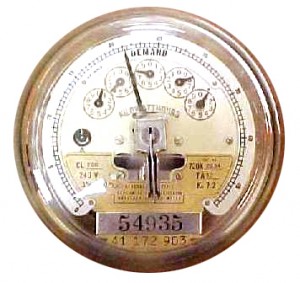 This message from a (former) reader hit my inbox this morning:
This message from a (former) reader hit my inbox this morning:
>To whom it may concern…
>
>When the Helena IR started charging viewers for its online website, I dropped them as my homepage, and I took up your website as my Montana information source. Now that “your” website will be charging for online access, I will no longer support your paper& website nor the Helena IR paper or website. I will get my Montana information& news elsewhere. I know I’m not the only one that will take this action… good luck with your website subscription.
I’d like to “unpack” this message — if I may be allowed to pull out some of the literary theory jargon from my distant past.
>When the Helena IR started charging viewers for its online website, I dropped them as my homepage, and I took up your website as my Montana information source.
Thank you.
>Now that “your” website will be charging for online access,
Why is “your” in quotation marks? Was there ever any doubt about whose website it was? I admit freely that our old tagline was “It’s *your* paper,” but that never carried over to the online site of things.
>I will no longer support your paper& website nor the Helena IR paper or website. I will get my Montana information& news elsewhere.
How were this reader “supporting” it in the past if he or she wasn’t paying the Chronicle? Was it moral support? Perhaps the reader thinks that their visits to our page tallied up so much money in advertising revenue that it was like they had subscribed. (Not true.)
>I know I’m not the only one that will take this action… good luck with your website subscription.
Likely, this person is right. Judging by my inbox, many people are bidding the Chronicle adieu because the paper is asking them to pay for the news.
Many of these people, who have expressed their frustration in [comments](http://www.news.hypercrit.net/2012/05/21/youll-rue-the-day-and-words-to-that-effect/) on [our news story](http://www.bozemandailychronicle.com/news/dailyfeatures/article_53272808-a2f7-11e1-9b0d-0019bb2963f4.html), feel that our 1.2 million pageviews per month is a license to print money and that we shouldn’t need to charge readers to access the site. Case in point, [from user Shaqasorus](http://www.bozemandailychronicle.com/news/dailyfeatures/article_53272808-a2f7-11e1-9b0d-0019bb2963f4.html#comment-183b3548-a38f-11e1-b9f4-bf8898b209e2):
>First you need to get a new Advertising Manager. One that understands the new digital age paradigm. If you cannot turn 1.2M page views a month into a steady and sustainable monthly advertising revenue stream then you have a product that is not worth saving.
User [bozmama](http://www.bozemandailychronicle.com/news/dailyfeatures/article_53272808-a2f7-11e1-9b0d-0019bb2963f4.html#comment-c6fb7a7a-a399-11e1-a4cd-fb4e2dcb3d35) responded:
>I have about 5 ideas off the top of head for online ad $$…I agree with Shaq.
I’d love to hear those ideas. If you’re reading, send them to
In the meantime, I’ll take the word of Alan D. Mutter, a former newspaper man and consultant specializing in new media ventures involving journalism and technology, [wrote](http://newsosaur.blogspot.com/2012/04/newspaper-digital-ad-share-hits-all.html) just a few weeks ago that newspapers’ share of digital ad revenue has hit an all-time low.
In 2003, when the Newspaper Association of America first started tallying the industry’s digital market share, newspapers held 16.7 percent of digital advertising in the U.S., Mutter reports. The newest data put that number at 10.3 percent.
Admittedly, Shaqasorus is right. This decline in newspapers’ share of the digital ad market is due to many papers thinking that all they have to do is throw some banner ads online then sit back and wait for the Google check to come.
It’s not that easy. We know it, and we have talented ad people working on the digital front right now trying to cajole into motion a machine built originally to do a different job. Until we get initiatives in place to make money online in novel ways, the fact remains that print dollars and digital pennies just don’t balance out.
I don’t necessarily agree 100 percent with the theory of paywalls and metered paywalls, but at any rate, we are turning on the meter on June 5. Perhaps the commenters are right; perhaps it will fail — though I’m not sure by what criteria we’d judge it a failure. This is the first time our paper has done this, and we are only the second paper in our company to roll out a metered site. The only definition I have for failure at this point is a catastrophic drop in Web traffic.
Perhaps we’ll find a new definition as time goes on. It’s too early to say.
